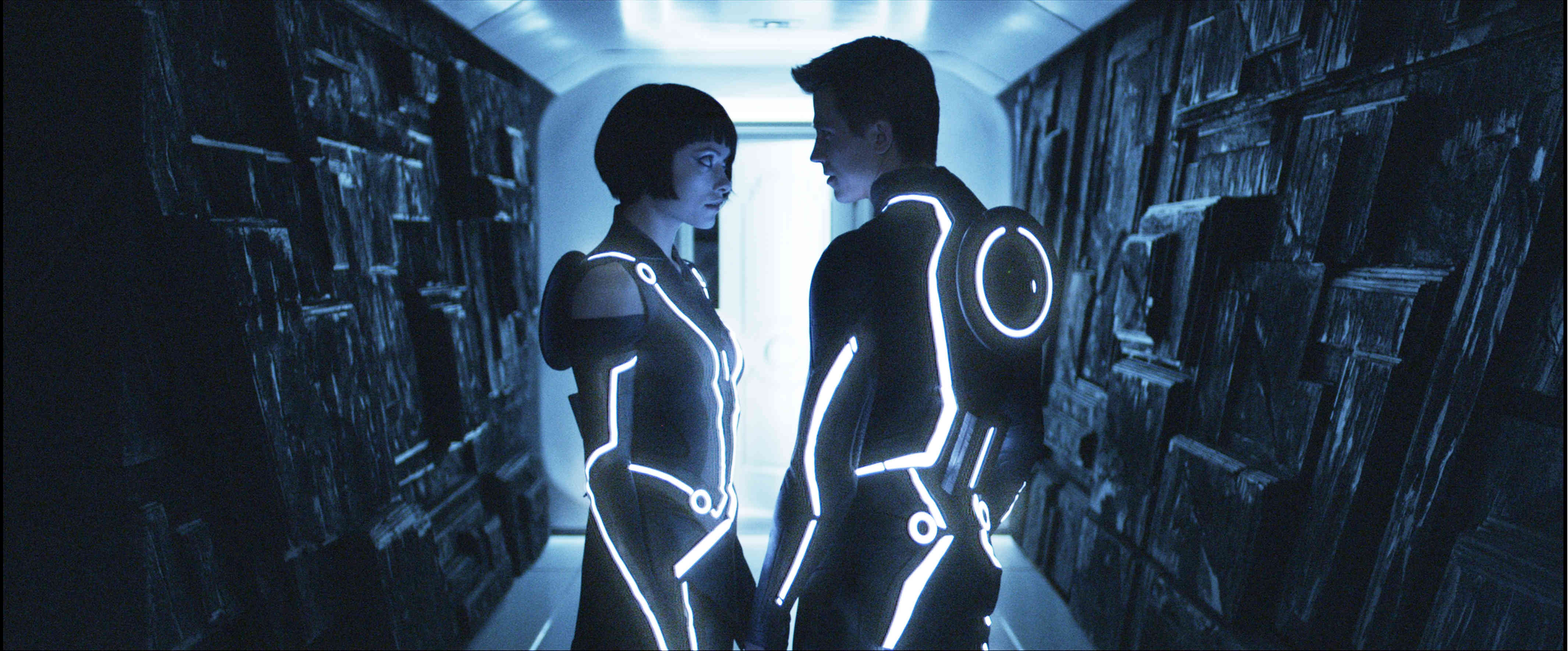Rating: **
As noisy, disjointed and tone-deaf as it is, TRON: Legacy is at least enjoyable as a footnote of sorts to this year’s most celebrated movie, The Social Network (2010). Should the Joseph Kosinski’s 3-D behemoth be called TRON: The Grid, the connection would have been even more pronounced.
Kevin Flynn (Jeff Bridges) is obsessed with creating a democratic cyber-Utopia, with the word “sharing” for a constitution and the “users” for a self-guarding army. And since there’s no business like share business these days (case in point: Mark Zuckerberg), small wonder that his innocuous impulse ends up as a huge corporation, Encom (case in point: Facebook etc.).
Early on in the movie the executive board of Encom is shown and – in an amusing and perceptive touch – 99% of its members are not a day over 25 (they wear morbid-chic Twilight attire). Youth without youth is avenged by… you guessed it: youth. Sam Flynn (Garrett Hedlund), Kevin’s admirably sane heir, is the main shareholder in Encom, but he’s cool enough to sabotage his own company (in a Peter Parker-like opening stunt).
The movie is mostly gibberish: rarely entertaining, always numbing and inconsistent throughout. Its absolute nadir comes with the appearance of Michael Sheen as Castor, the sub-Joel Grey M.C. of the surprisingly commonplace cyber-joint “The End of the Line” (a nod to Gaspar Noé’s “Rectum”, as depicted in Irreversible [2004], perhaps…?). Sheen is desperately camping things up: all giggly, he prances around, brandishing a stupid neon-cane (with top hat inexplicably missing), and finally belting out what might have been the movie’s wishful motto: “This is going to be quite a ride!”.
(It’s an embarrassing performance, but it doesn’t top some of the lines others were given to chew on. Sam, when asked to convey what sun is like, comes up with this nugget of B-movie descriptive flair: “Warm. Radiant. Beautiful”).
The movie not only eschews the visual elegance of its 1982 predecessor (which I happen to like), but is not above devouring Stanley Kubrick’s white Beyond-Infinity-Chamber from 2001: A Space Odyssey (1968). In Kosinski, the dish being served in this venerable setting is a roasted pig and the wine (?) is toxic-waste-green. Classy.
Just like Avatar (2009) a year ago, TRON: Legacy delivers a metaphor for our own experience of viewing it. There’s a sequence midway through that shows “The Games”: a gladiator-like struggle suspended in mid-air, performed for the roaring crowds down below. The roaring multitudes, though heard in head-splitting outbursts, are nowhere in sight: they’re bathed in shadows. They’re us: all “users”, relevant only for the sake of having “logged in”, but not for the sake of being there or feeling anything at all.







